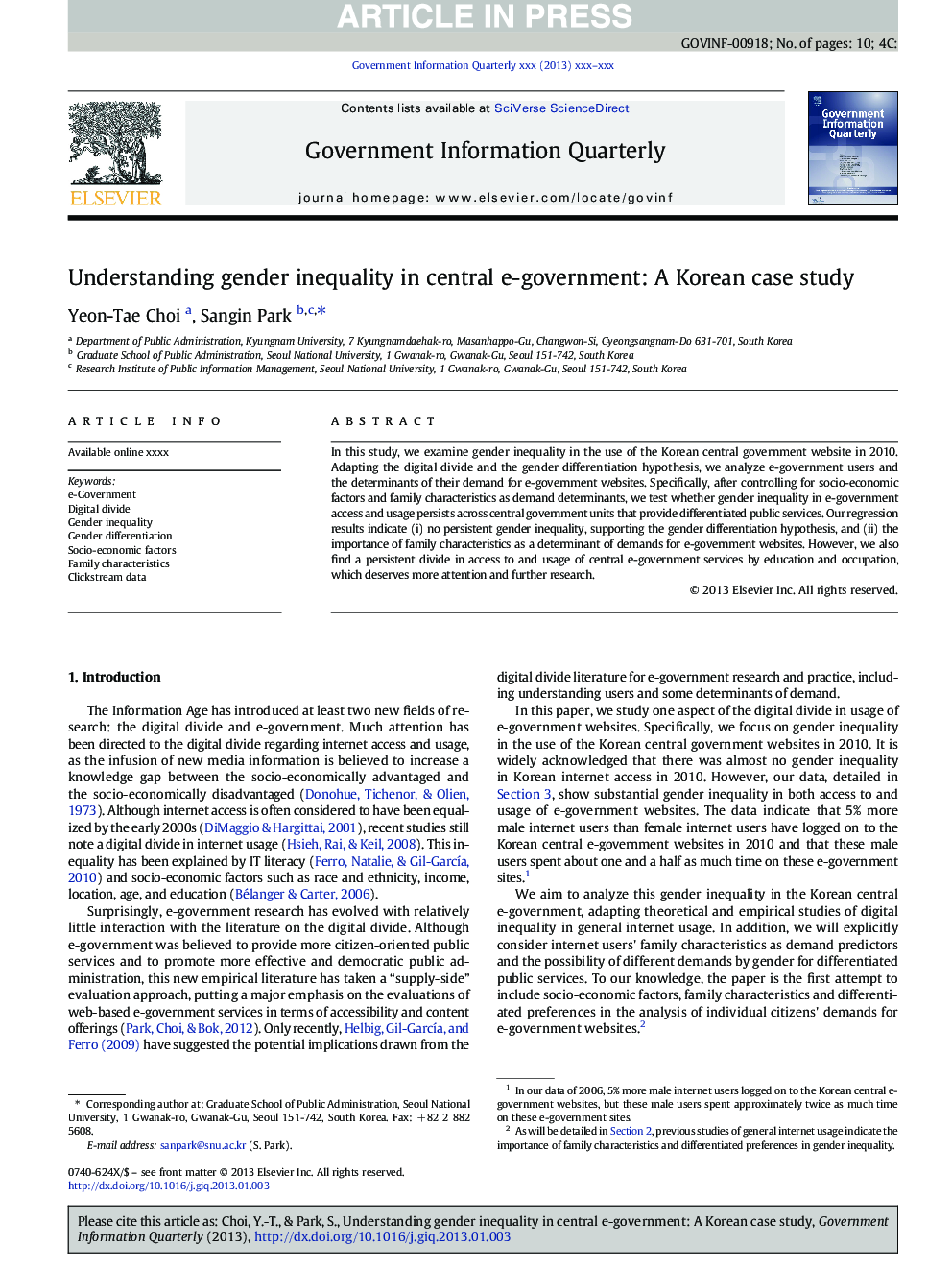| Article ID | Journal | Published Year | Pages | File Type |
|---|---|---|---|---|
| 10495658 | Government Information Quarterly | 2013 | 10 Pages |
Abstract
In this study, we examine gender inequality in the use of the Korean central government website in 2010. Adapting the digital divide and the gender differentiation hypothesis, we analyze e-government users and the determinants of their demand for e-government websites. Specifically, after controlling for socio-economic factors and family characteristics as demand determinants, we test whether gender inequality in e-government access and usage persists across central government units that provide differentiated public services. Our regression results indicate (i) no persistent gender inequality, supporting the gender differentiation hypothesis, and (ii) the importance of family characteristics as a determinant of demands for e-government websites. However, we also find a persistent divide in access to and usage of central e-government services by education and occupation, which deserves more attention and further research.
Keywords
Related Topics
Social Sciences and Humanities
Business, Management and Accounting
Business, Management and Accounting (General)
Authors
Yeon-Tae Choi, Sangin Park,
